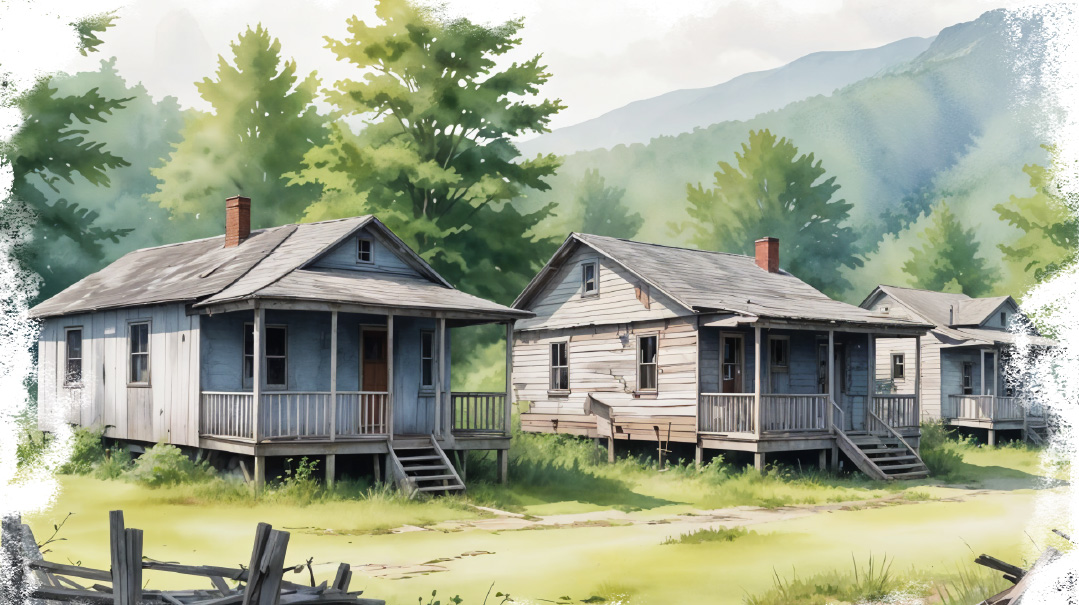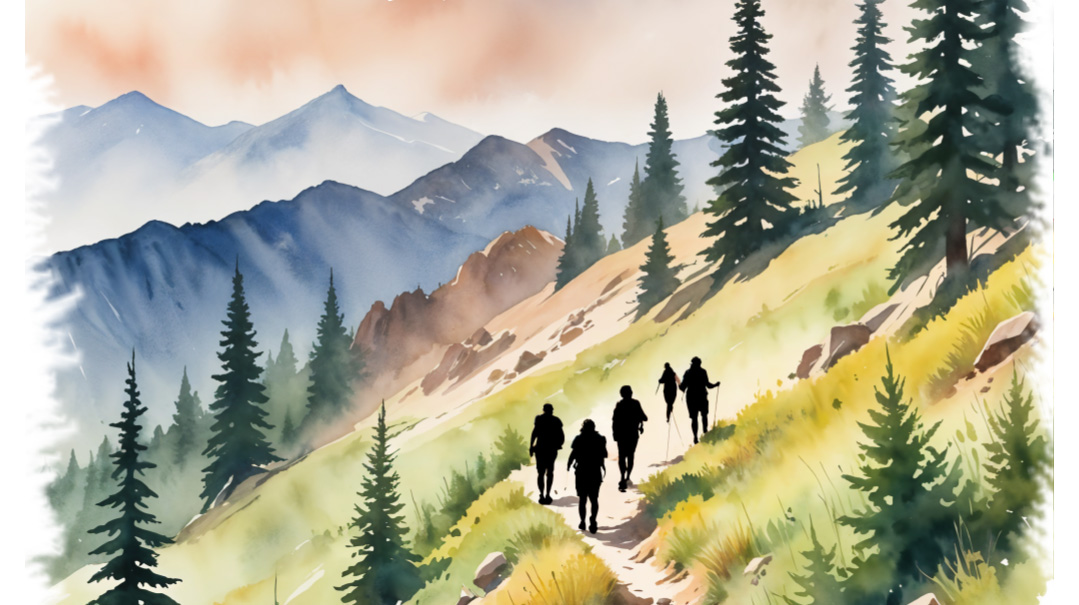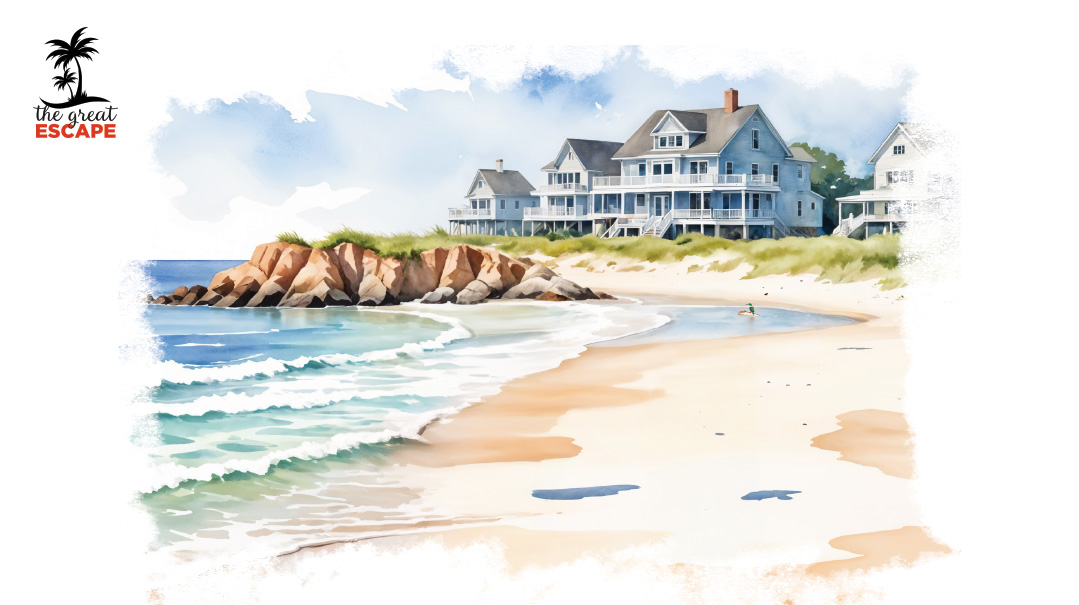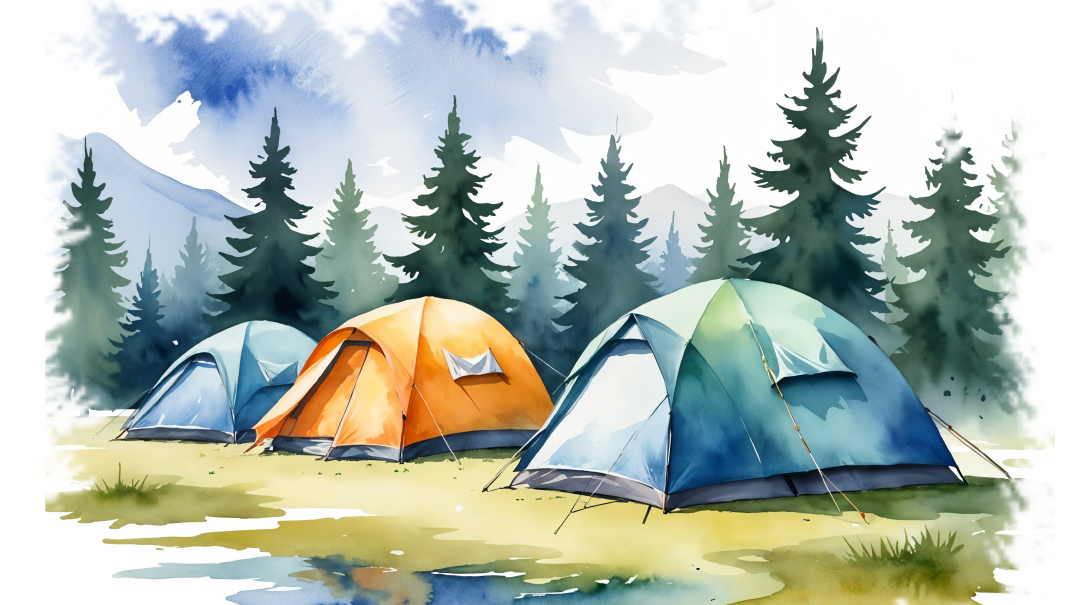Total Immersion
| August 20, 2024Mishpacha contributors share accounts of those special summers disconnected from the grind
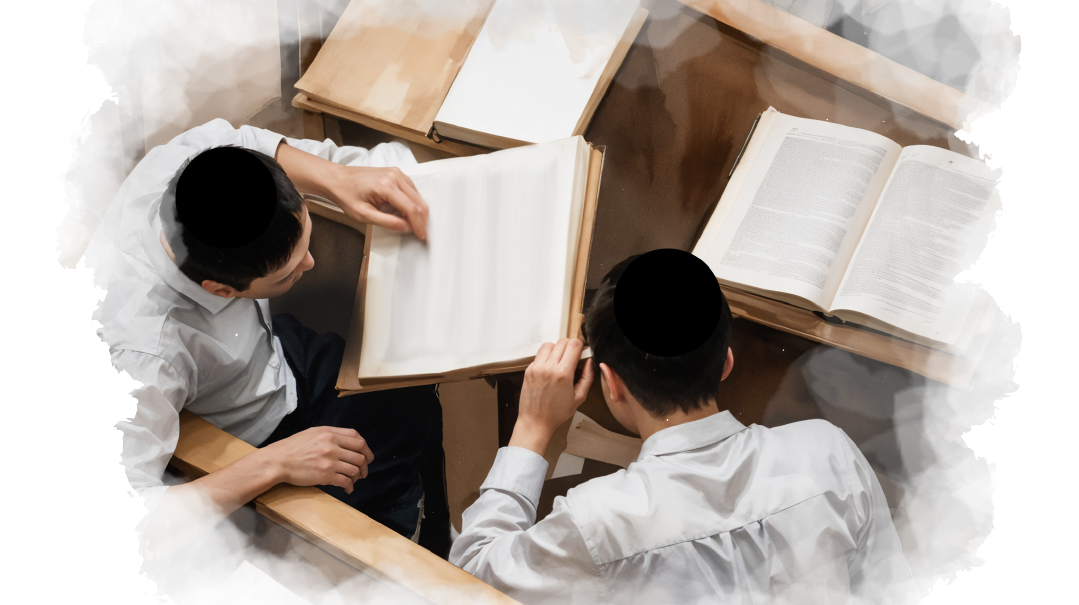
Location: Lakewood, New Jersey
Year: 2021
Off the Grid
This is the story of how I spent a summer sleeping in a storage closet next to a mikveh in the basement of a shul in Lakewood with almost zero connection to the rest of the world. But my story doesn’t begin here. It actually begins almost a full year earlier....
The summer I returned to America after learning for two years in Eretz Yisrael was a tough one. Aside from the Covid pandemic wreaking havoc on all our lives, I was experiencing my own personal misery: At my parents’ insistence, I had returned to America to attend college for a degree in psychology, and I was struggling to regain my footing.
I was also at a crossroads. Until this point, my life followed the natural progression of middle school, high school, yeshivah in Israel with my friends — but now, graduate school or work should have been the next step, but my heart and mind remained firmly in yeshivah.
This was the backdrop that had me leaning on old rebbeim and friends from America for support. On a near-daily basis, I spoke to my head counselor from back in my hometown day camp. As per his rule, though, our conversations could not be solely about me; we needed to end every conversation dedicating several minutes to finding a shidduch for his daughter. (This former head counselor would later become my father-in-law, but that’s a different story about a different daughter.)
And so it went for several weeks, my friend/rebbi/former boss offering me suggestions for chizuk and me offering him suggestions for shidduchim, until one day I mentioned someone just out of the Lakewood freezer. This idea really seemed to be on point, with only one hitch — I had been warned by several friends that I’d need pull to get a suggestion to his mother.
I called this friend out of the blue to reconnect, and we set up a biweekly phone chavrusashaft. My brilliant plan was that after several weeks, I would suggest the shidduch. My plan worked to perfection — at least, the learning and getting close part. After a few days, I totally forgot about the shidduch; I never even sent him the résumé.
F
ast-forward several months to Pesach-time, when I was thinking about the summer. I assumed I’d work in camp, as I always had, until my new phone chavrusa suggested that I spend my six weeks of vacation learning with him in Beth Medrash Govoha (his chavrusa was getting married the day my yeshivah-college program finished).
But there were several logistical hurdles: Where would I stay? (BMG does not allow people to join mid-zeman.) How would I take my four college summer classes in Lakewood? And what would I do about a phone, as Lakewood does not allow smartphones (which I owned at the time)?
A different friend told me that one of the yeshivah’s neighbors has a beautiful basement guest room; perhaps I could stay there. I also heard about cubicles with filtered Internet you could rent by the hour, which would take care of my classes. And I decided that, with the exception of my time in the Internet café, I could make it through the summer without a phone.
I worked feverishly the next few weeks to take care of the details. I found chavrusas for the other sedorim, spoke to the owner of the guest room, and pumped myself up to get ready for a summer far out of my comfort zone.
I hitched a ride with an acquaintance from Queens and gave him the address next to the yeshivah. But when we pulled up, I took one look and was convinced there was a mistake. In place of the gorgeous mansion I had envisioned stood an old shul. (My friend later admitted that he had been vague about a few of the details out of fear — justifiable — that had he told me the truth, I would never have come.)
I knocked tepidly on the door, and the host, an elderly chassidishe Yid with a warm smile, opened it and graciously told me he’d lead me to my accommodations. We walked downstairs — and I almost turned around and walked out.
The room wasn’t a bedroom; it was a large unfinished storage room. The paint was peeling, the air felt wet and musty, and there was a strong smell I knew but couldn’t place. There were no windows and no closets, and the only furniture was 12 beds scattered throughout the entire room. (Two were occupied by elderly Israeli meshulachim who needed a place to stay that night, I was told; the rest of the time I would have the room all to myself.) To add to the mess confronting me were the three floating, mostly empty coatracks that, like everything else in that room (myself included), had obviously never quite found their place in this room.
I could sense something was missing, but couldn’t figure out what — until it hit me.
“Where’s the bathroom? And the shower?” I asked.
My host led me to the next room, which was actually an active men’s mikveh with a small bathroom stall and two mikveh showers.
Ah, that’s it! I realized, placing the smell. The powerful scent of a chlorinated mikveh.
It took all my strength not to say anything.
As soon as my host left, I plopped down on my bed to contemplate how I had gotten myself here and what I should do next. My first reaction was to leave immediately and see if there were any last-minute openings at camp (I had an in with the head counselor). But after the initial shock wore off, I asked myself (and my new roommates, but they didn’t speak English) a very uncomfortable question:
If, as I’ve been telling myself for the last year, there is nothing I value more than learning Torah, then why am I valuing my material comforts and connections to the outside world more than a precious six weeks of learning here in yeshivah?
The more I thought about it, the more I realized this was a once-in-a-lifetime opportunity. I would be able to dedicate myself totally to learning Torah (minus 45 minutes a night in a rented cubicle). There would be no phone calls, no WhatsApp chats, no checking the news or baseball scores. I wouldn’t even have the standard dorming comforts to fall back on! This summer, the only things that would exist for me would be my shtender in the beis medrash and a Bava Basra.
In what may be the smartest decision I ever made, I decided to stay.
T
he ensuing weeks were some of the best of my life. For the first time since I had started, college didn’t weigh on me, because my studies were confined to my Internet cubicle hour. There were no distractions from my smartphone (or any phone for that matter: no texting, calls, or WhatsApp, with the exception of when I was in the cubicle doing my classes). For the first time in my life, I lived what my rosh yeshivah in Eretz Yisrael would say in almost every single shmuess: “You must have a single-minded focus on limud haTorah.”
My rosh yeshivah’s words turned into something of a mantra: Single-minded focus, single-minded focus would play in my head every time I felt a twinge of jealousy when I heard about exciting sports news or adventures back in camp, things in the “real world” I was missing out on.
I quickly learned that not only would the world go on without my commenting on family WhatsApp posts, but I would go on as well. I also discovered many “missing” hours in my day that I didn’t know existed — which I could now channel toward more productive activities.
While I certainly grew in my learning, I grew even more in my interpersonal relationships. I learned that having a conversation with someone in the yeshivah coffee room for five minutes without any cell phones can connect you more deeply than an hourlong DMC with phones on the table. I learned that real hasmadah doesn’t just mean learning many hours, it means doing so without any phones in the beis medrash, allowing for more focused learning and for developing a real, meaningful relationship between chavrusas. I learned that when you walk from point A to point B, you can actually look at where you’re going, as opposed to just staring at your latest text.
One incident in particular stands out: On one of my first days in BMG, I was so exhausted from the trip into Lakewood and its new, demanding schedule that I took a nap during lunch. Afterward, I sat to enjoy a coffee when someone tapped me on the shoulder.
“Reb Yid,” said a bochur I didn’t recognize, “I think your yarmulke blew off on your way in.”
I reached up and, embarrassed, realized he was correct. He offered me his hat and walked me back to my basement to get my yarmulke.
As we were walking, I jokingly asked, “How do you know I normally wear one? Lots of non-frum people visit yeshivah.”
He looked at me, puzzled. “You sat in my row for the last two days, how would I not notice you were new to yeshivah?”
I was astounded — in a yeshivah of thousands and thousands, it was obvious to this boy that you notice your surroundings, especially if it involves someone new to the yeshivah — because instead of looking only in your personal space, from chavrusa to Gemara to phone and back again, the people here who were truly living the life of a Lakewood ben Torah without the distractions of modern gizmos and gadgets were more sensitive to their surroundings and constantly aware of their interpersonal obligations.
As all of this clicked, I realized that not only were so many people there achieving greatness in Torah, they were becoming people whose very lives were imbued with the Torah’s values by living my summer experience every day of their lives.
Not only had I found my calling, I had found my home, I decided.
The moment I finish my degree, I’m going to Lakewood.
And that’s where I’ve been ever since.
David Blum is learning in Beth Medrash Govoha in Lakewood, New Jersey.
(Originally featured in Mishpacha, Issue 1025)
Oops! We could not locate your form.

